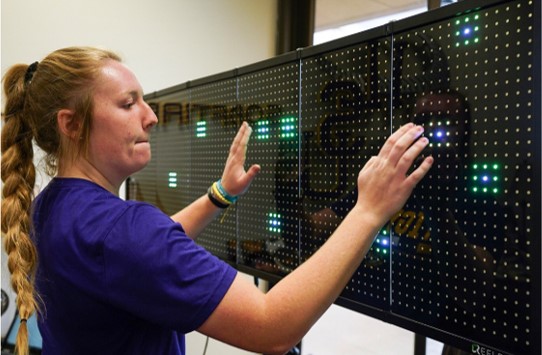Sports teams find creative ways to cross-train the brain off-field
 __
__
HOW TO TRAIN THE BRAIN: COGNITIVE TRAINING IN LACROSSE (US Lacrosse Magazine):
“Bonnie Rosen has always been interested in finding a training method that extends beyond the lacrosse field. That pursuit has taken her beyond the restraints of physical training in its entirety.
The Temple women’s lacrosse coach uses virtual reality technology as an alternative way to train her team, part of an innovative wave of cognitive exercising that flexes muscles oft-forgotten about — in the brain … the Owls fundraised to purchase 10 Oculus Go headsets last January, then purchased one newer model — the Oculus Quest — more recently. The initial “workouts” lasted 15–20 minutes and happened three times per week.
Temple uses NeuroTrainer, a neuroscience-based training app on Oculus, that turns games into cognitive training sessions … there’s no proof just yet that VR tech improves athletes. There are ancillary benefits, though.
“I don’t know if I can say if there’s that payoff,” Rosen said. “One of our goalkeepers, she was really committed to it last year. I don’t know that she saw the results from what she did in the NeuroTrainer to on the field, but she definitely learned about herself.”
Another company in this space, FITLIGHT, “allows the user to enhance their existing training protocols by adding cognitive loads to it,” director of sales Rob Bouw said. “Combining the visual and auditive stimuli that the FITLIGHT Trainer offers to your lacrosse training allows you to train your decision-making process by making your brain (prefrontal cortex) more efficient.”
News in Context:
- Washington Wizards to test virtual reality system to better monitor players’ fatigue
- Sport-specific brain training programs gain adoption in basketball, ice hockey and soccer
- tDCS coming to an Equinox gym near you: Good, Bad or Depends?
- Can brain training work? Yes, if it meets these 5 conditions
How to promote brain health at scale: Examples in the workplace, K12 education and consumer tech from SharpBrains


